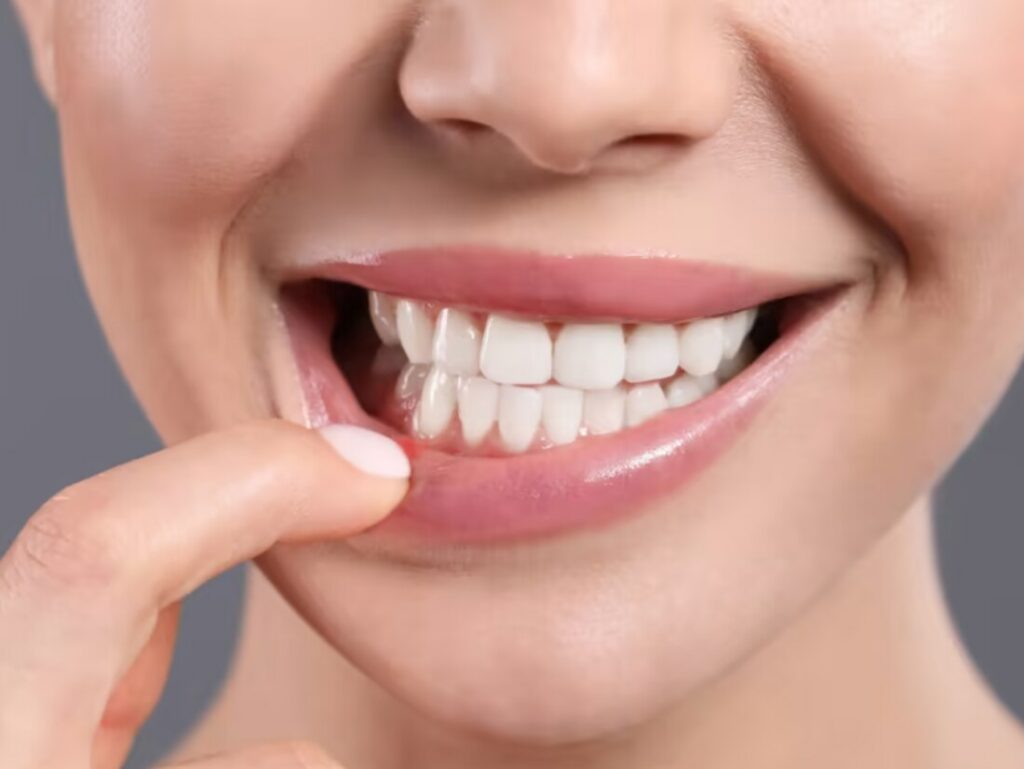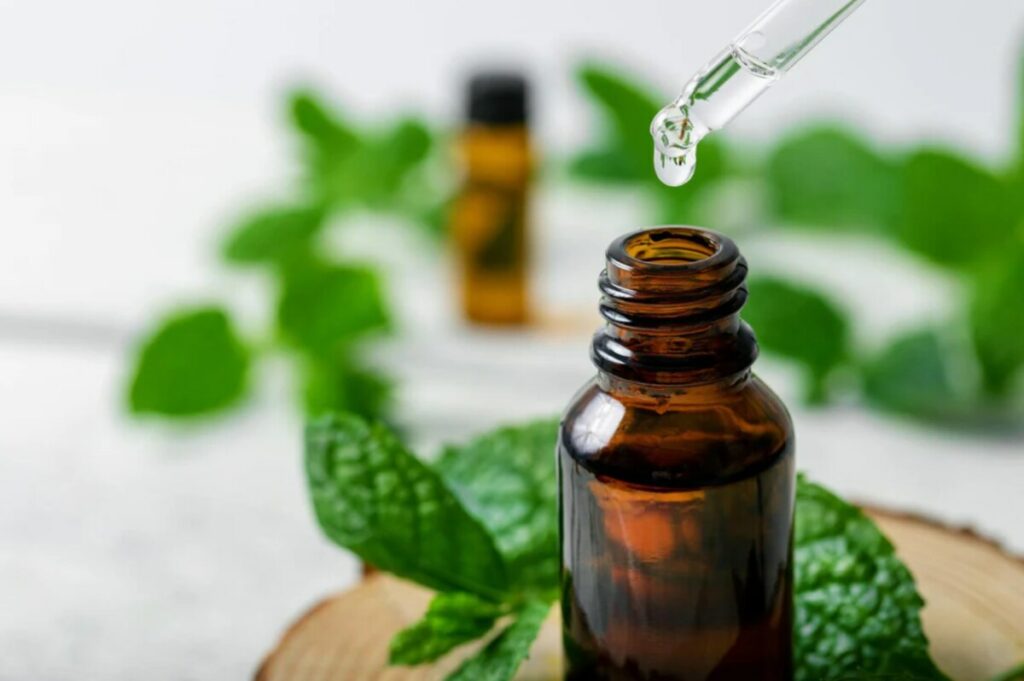Mouth ulcers, also known as canker sores, are small, painful sores that can develop inside the mouth. While they are usually harmless and heal on their own, they can be quite uncomfortable and disruptive to daily life. Managing mouth ulcers involves a combination of preventive measures and targeted treatments to alleviate pain and promote healing. In this comprehensive guide, we will explore various Ways to Manage Mouth Ulcers, from lifestyle changes to home remedies and medical interventions.
Ways To Manage Mouth Ulcers: Understanding Mouth Ulcers

Before delving into management strategies, it’s essential to understand what mouth ulcers are and what causes them. Mouth ulcers are shallow, round or oval sores that can form on the inside of the cheeks, lips, or under the tongue. They can be caused by a variety of factors, including:
Trauma: Accidental biting, aggressive tooth brushing, or sharp objects can cause trauma to the delicate tissues inside the mouth, leading to ulcers.
Stress: Emotional stress or anxiety can weaken the immune system, making the body more susceptible to mouth ulcers.
Nutritional Deficiencies: A lack of essential vitamins and minerals, such as vitamin B12, iron, and folate, can contribute to the development of mouth ulcers.
Hormonal Changes: Some individuals may experience mouth ulcers during hormonal changes, such as menstruation.
Certain Foods: Spicy or acidic foods can trigger or exacerbate mouth ulcers in some individuals.
Lifestyle Changes for Prevention
Preventing mouth ulcers involves adopting a few lifestyle changes to minimize potential triggers. Here are some recommendations:

Oral Hygiene: Maintain good oral hygiene by brushing your teeth gently with a soft-bristled toothbrush. Harsh brushing can cause trauma to the oral tissues.
Dietary Modifications: Identify and avoid foods that trigger or worsen mouth ulcers. Spicy, acidic, and salty foods are common culprits.
Stress Management: Practice stress-reducing techniques, such as meditation, deep breathing exercises, or yoga, to mitigate the impact of stress on your immune system.
Supplements: Consider taking supplements to address nutritional deficiencies. Consult with a healthcare professional to determine if you need supplements such as vitamin B12, iron, or folate.
Hormonal Balance: If hormonal changes seem to contribute to your mouth ulcers, consult with a healthcare provider to explore options for managing hormonal fluctuations.
Home Remedies for Relief from Mouth Ulcers
When mouth ulcers do occur, several home remedies can help alleviate pain and promote healing:

Saltwater Rinse: Gargling with a warm saltwater solution can help reduce inflammation and promote healing. Mix a teaspoon of salt in a glass of warm water and rinse your mouth several times a day.
Honey and Turmeric Paste: Create a paste by mixing honey and turmeric powder and apply it directly to the ulcer. Both honey and turmeric have anti-inflammatory and antimicrobial properties.
Coconut Oil Pulling: Swishing coconut oil in your mouth for 10-15 minutes, a practice known as oil pulling, may help reduce inflammation and promote healing.
Aloe Vera Gel: Applying a small amount of aloe vera gel directly to the ulcer can provide soothing relief and support the healing process.
Ice Packs: Applying a cold compress or sucking on ice chips can help numb the area, providing temporary relief from pain.
The Benefits of Using Essential Oils for Gum Health
Essential oils have been used for centuries for their various health benefits, and their use in promoting gum health is no exception. Many essential oils, such as tea tree oil, peppermint oil, and clove oil, have natural antibacterial and anti-inflammatory properties that can help combat gum disease and promote overall oral health. When used in combination with regular brushing and flossing, essential oils can help reduce inflammation, prevent plaque buildup, and freshen breath. Incorporating essential oils into your oral care routine can be a natural and effective way to maintain healthy gums and a beautiful smile.

Mouth ulcers can be a painful and bothersome condition, but there are several natural remedies that can help manage the discomfort and promote healing. Essential oils have been used for centuries for their antibacterial and anti-inflammatory properties, making them a great option for maintaining essential oils for gum health and treating mouth ulcers. Additionally, essential oils can also be used in aromatherapy to reduce stress and promote overall oral health. When used correctly, essential oils can be a valuable tool in managing mouth ulcers and maintaining healthy gums.
Over-the-Counter and Prescription Treatments
For more severe or persistent mouth ulcers, over-the-counter and prescription treatments may be necessary:

Topical Analgesics: Over-the-counter gels or ointments containing benzocaine or lidocaine can numb the ulcer, providing relief from pain.
Corticosteroids: Prescription-strength corticosteroid mouth rinses or ointments can help reduce inflammation and promote healing.
Oral Antiseptics: Oral antiseptic solutions containing ingredients like chlorhexidine may be recommended by healthcare professionals to prevent infection and support healing.
Pain Medications: Over-the-counter pain medications, such as acetaminophen or ibuprofen, can help manage pain associated with mouth ulcers.
For More About: https://medium.com/@phyllishoyle/reverse-gum-recession-naturally-fea1c0654546
When to Seek Professional Help for Mouth Ulcers
While most mouth ulcers resolve on their own or with home remedies, there are instances where professional medical intervention is necessary. Consult with a healthcare provider if:
Ulcers are Persistent: If ulcers do not improve within two weeks or if they worsen, it’s important to seek professional advice.
Severe Pain: Intense and persistent pain that interferes with eating, drinking, or daily activities should prompt a visit to a healthcare professional.
Recurrent Ulcers: If you experience frequent or recurrent mouth ulcers, a healthcare provider can help identify underlying causes and develop a targeted treatment plan.

For More Information Visit here
Conclusion:
Managing mouth ulcers involves a multifaceted approach, incorporating lifestyle changes, home remedies, and, in some cases, medical interventions. By understanding the causes of mouth ulcers and adopting preventive measures, individuals can reduce the frequency and severity of these painful sores. Home remedies provide relief for mild cases, while over-the-counter and prescription treatments are available for more severe or persistent ulcers. If you’re unsure about the best course of action for your specific situation, don’t hesitate to consult with a healthcare professional for personalized guidance and treatment. Remember, a proactive approach to oral health can contribute to overall well-being and comfort.

